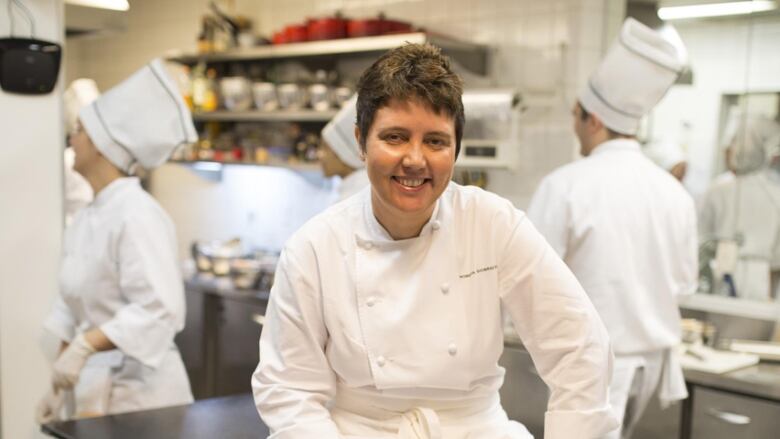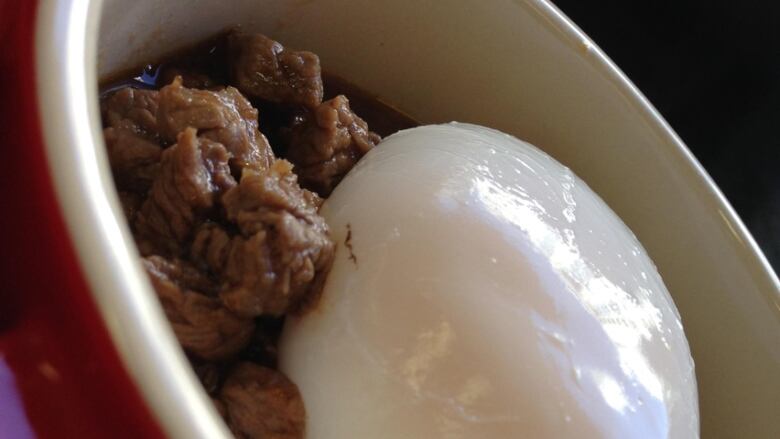What's fuelling Brazil's athletes? Olympic team chef spills the rice and beans
Carioca meals prepped exclusively for athletes just take it easy on the brigadeiro

When Brazil's national team wins medals in these Rio Olympics, the athletes can credit their training, their strength, their stamina, maybe even a winning attitude.
But let's not forget that humble rice and beans.
"Of course, rice and beans. Every day!" Brazil's official Olympic chef insists, her eyes alight, hands gesticulating wildly during an interview on Rio de Janeiro's sun-kissed Copacabana Beach. "Because you don't live without it. It's impossible."
Among the Brazilian Olympians here, Roberta Sudbrack is an idol in her own right. The Michelin-starred restaurateur is the personal chef to Equipe do Brasil, tasked with the tremendous responsibility of feeding and fuelling 465 peak-condition Brazilian bodies as this South American country hosts the Summer Games.
"It's a puzzle," she says of the menu design challenges that resulted in 191 recipes. A triathlete may demand a different diet than, say, an archer or a synchronized swimmer.

"For women and for the guys, I have to make it work for all the modalities."
40 days of consultations
Fortunately, Sudbrack got a head start. The chef, whose eponymous Rio bistro is listed among Diners Club's World's 50 Best Restaurants, began this Olympic meals project when she debuted as the team's official chef during the 2012 London Games.
To determine caloric and nutritional requirements this time, she consulted for 40 days with the national team's coaches, personal trainers and dietitians to design a simple meal plan, including 28 meat dishes for 19 different events.
Dining hall staffers lay out a banquet of food items including local regional ingredients such as okra, leafy spinach-like taioba greens, cassava, chayote gourd, acai berries and tapioca.
"And a lot of meat, too," she says. "Brazilians love meat. Beef, fish, a lot of fish. Steaks and stews."
Only free-range, hormone-free chicken is used. No duck or pork is on the menu.
Another traditionally Carioca dish a rich, meaty braised stew of rump steak known as picadinho will also be served up. Simplicity is key, as Sudbrack only uses fresh foods and organic ingredients.
There's also just something about "the emotional connection" to food and familiar ingredients that is wholesome for stomachs as well as souls, Sudbracksays.
"I had a couple athletes in London start crying when they saw there was rice and beans," she says. "Athletes are out travelling, and training, and for us, rice and beans, we start life eating this. It's important to us. Every mother has her own secrets to making it. It's emotional.There's no explanation."
Menu
Among some dishes the Brazilian team can sample:
- Roasted chicken marinated with lime and parsley.
- Quinoa salad with grilled okra and tomatoes.
- Couscous salad with apricot and raisins.
- Lentil salad with roasted tomatoes and spinach.
- Roasted potatoes with lime and oregano.
- Hormone-free chicken stew with saffron and green corn.
- Smoked chicken salad with potato sticks, raisins and corn.
- Roasted apples with toffee.
- Creamy canjica dessert (canjica is a variety of corn) with milk, sugar and cinnamon.
Team delegations and managers then control portion sizes and dictate whether an athlete canindulge in dessert on a given day which is allowed about once a week.
"They tell them, 'Today, you can eat a sweet.' "
And the sweets are very sweet, and very Brazilian, Sudbrack says. Athletes can look forward to brigadeiros, a truffle-like dessert that classically comprises condensed milk, cocoa powder, butter and sprinkles.
Sudbrack's take on it, named the "Brigadeiro Olimpico," will be served in a spoon.

Might that be a little fattening for an Olympian?
"Oh, yes. But you must try it," Sudbrack says. "Of course, the athletes cannot eat this every day."
Special incentive
As in the London Games in 2012, an athlete who brings home gold will also receivea second, culinary prize.
"We bring them a whole pot of brigadeiro," Sudbrack says.
The celebrated chef is among Latin America's best-known, and she previously worked as a personal chef to former Brazilian presidentFernando Henrique Cardoso.
As a former women's handball goaltender, Sudbrack also reserves a special place in her heart for the handball squad.
She does indeed feel a part of the team, even if she's not directly competing. She was even an official torchbearer during the Olympic torch relay.
And if her meals can help fuel a victory, she says, all the better.
"I will have a small part of this."













_(720p).jpg)


 OFFICIAL HD MUSIC VIDEO.jpg)
.jpg)



























































































